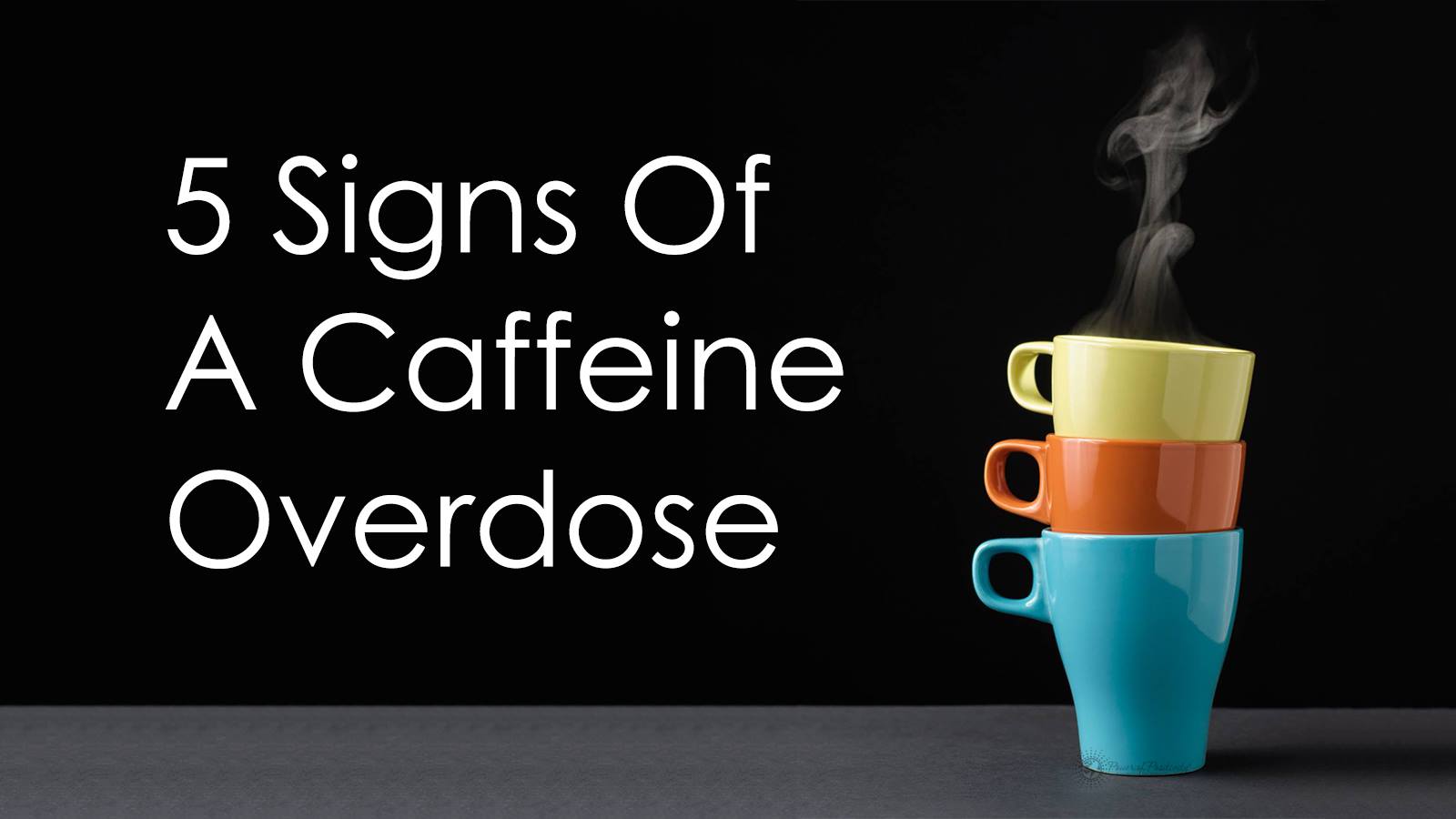“Although it’s entirely legal, caffeine found naturally in coffee, and other common drinks is a stimulant drug…It elevates your heart rate, increases alertness, and changes the way your brain and body work in a number of different ways – some that are beneficial but others that might be dangerous.” – Dr. Josh Axe
There’s no question that caffeine – in moderate amounts – can bring certain advantages. The reason that most consume caffeine is simple: it provides a nice energy boost. That said, caffeinated drinks – energy drinks, tea, coffee and others – actually contain several biological compounds that intricately interact many of the body’s physiological mechanisms. According to the Mayo Clinic, the (maximum) recommended amount of caffeine for healthy adults is 400 milligrams (mg). This amount is far less for adolescents, who should consume no more than 100 mg in a day. Of course, the state of one’s health can affect how much, if any, caffeine should be consumed.
As a reference, here are some commonly consumed beverages and their respective caffeine amounts:
Black Coffee (12 oz.): 260 mg
Black tea (8 oz.): 30-80 mg
Red Bull (8.3 oz.): 80 mg
Soda (12 oz.) 30-70 mg
And others…
Dark Chocolate (1.45 oz.): 20 mg
Excedrin Tablet (1 tablet): 65 mg
NoDoz Tablet (1 tablet): 200 mg
What is a Caffeine Overdose?
Caffeine overdose occurs “when someone takes in more than a normal or recommended amount.” These amounts, as mentioned, are 400 mg for a healthy adult and 100 mg for an adolescent. Children, for obvious reasons, should not consume any caffeine.
As stated, moderate amounts of caffeine are not typically dangerous – and can be beneficial to us. However, excessive levels of caffeine in the body can be harmful. This can be explained by caffeine’s effect on the body.
Caffeine:
– Raises blood pressure
– Affects the Central Nervous System (CNS)
– Alters hormonal balance
– Affects blood sugar levels
– And many others (healthline.com lists 17 specific effects of caffeine on the body)
Symptoms
As with many acute conditions, the associated symptoms of a caffeine overdose can range from minimal (barely noticeable) to severe (even fatal). In most cases, after caffeine is excreted from the body, the symptoms will naturally dissipate.
Most people understand their tolerance for caffeine, which mitigates most cases of caffeine overdose. That said, we’ll discuss five of the more common symptoms of caffeine overdose, along with some other relative information.
5 Symptoms of Caffeine Overdose
1. Irregular heartbeat and palpitations
Unsurprisingly, as caffeine is a CNS stimulant, one of the first things it does is increase blood pressure. According to healthline.com, “If you have irregular heart rhythms, caffeine may make your heart work harder…ask your doctor if caffeine is safe for you.”
Caffeine’s effect on the cardiovascular system correlates with the amount of caffeine ingested. Overdoing on the substance, in rare instances, can “cause death due to convulsions or irregular heartbeat.”
2. Increased Thirst
Counterintuitive as it may sound, caffeinated drinks can ultimately increase thirst. In the case of a caffeine overdose, this symptom can manifest into dehydration – a potentially dangerous (even fatal) condition.
The Food and Drug Administration (FDA) states that consumption of caffeinated drinks does not sufficiently meet your body’s need for fluids. “Drinks with caffeine do not help meet your water requirements,” as they increase output (frequent urination – another symptom of over-caffeination).
3. Headache
The correlation between caffeine intake and headache occurrence is hard to explain. However, all of a sudden consumption of caffeine beyond tolerated levels can increase pressure, which can result in a headache.
Also, suddenly stopping or reducing caffeine intake can cause headaches. Ironically, many of the over-the-counter (OTC) headache remedies (e.g. Excedrin) and prescription drugs for eliminating headaches contain caffeine.
4. Feeling “The Jitters.”
Caffeine reaches the brain very quickly, acting as a CNS stimulant. One of the first sensations caffeine creates is an increased sense of alertness. In excess, however, this benefit can manifest into an unwelcome case of the “the jitters.”
“The jitters” is basically a sense of nervousness and uneasiness. We may subtly shake and feel on edge until the effects wear off.
5. Nausea, Diarrhea, and/or Vomiting
Ingesting caffeine will increase the levels of stomach acid; this typically will create a heartburn sensation or upset stomach. In most cases, this is a simple and subtle symptom that dissipates as the stimulant regresses in the body.
However, physical withdrawal from caffeine can induce other gastrointestinal (GI) problems, including nausea and vomiting. Diarrhea can occur both during a caffeine overdose and the period of withdrawal.
Treatment of Caffeine Overdose
Just ingesting “too much” caffeine does not necessarily indicate the need for medical intervention. Many of us have had one-too-many cups of coffee and just “waited it out.” Drinking water, light exercise, and eating foods high in magnesium or potassium, can help minimize many less severe symptoms.
Related article: These Things Happen To Your Body When You Stop Drinking Coffee For 7 Days
In the event that any of the above-mentioned (and other) symptoms become severe, it is wise to seek medical care. The attending physician may perform one or more of the following:
– Prescribe charcoal: this prevents the drug from entering the GI tract.
– Prescribe a laxative: induces methods of excreting caffeine from the body.
– Administer a gastric lavage: insertion of a tube to flush caffeine out of the stomach.
Heart rate may also be monitored via an electrocardiogram (EKG). Breathing support may be administered, if necessary.



















